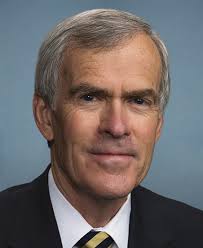Science
ALTERED HABITATS Bostonglobe.com
By Doug Struck
| GLOBE CORRESPONDENT APRIL 18, 2014
Don’t expect any help from Washington in combating climate change, says a man who knows both.
 “Until a majority of our political leaders can be persuaded that more Americans are concerned about it, we are not going to get much action out of Washington,” said Jeff Bingaman, a US senator from New Mexico for 30 years and former chairman of the Senate Energy and Natural Resources Committee.
“Until a majority of our political leaders can be persuaded that more Americans are concerned about it, we are not going to get much action out of Washington,” said Jeff Bingaman, a US senator from New Mexico for 30 years and former chairman of the Senate Energy and Natural Resources Committee.
There is little sign that Americans see climate change as a very high priority, Bingaman said Thursday at a talk sponsored by the Harvard University Center for the Environment.
Only 40 percent of Americans see climate change as a threat, he said, citi
“It’s reasonable to predict that we are headed to another campaign season in which climate change will be a non-issue,” Bingaman said at Harvard Law School’s Austin Hall.ng Pew research.
Bingaman, a Democrat who retired from the Senate last year and is now a fellow at Stanford Law School, highlighted the gap between inaction by Congress and the size of the challenge of curbing greenhouse gas emissions.
In 2009, the “Group of Eight” industrialized countries pledged to reduce greenhouse gas emissions 80 percent in developed countries by 2050, he noted.
“As Moses learned 2,000 years ago, it’s easier to write it down” than get it done, he observed.
In contrast, the ExxonMobil oil giant has predicted energy demand will increase 35 percent by 2040, and says most of that will be filled by sharp increases in the consumption of oil and natural gas. Even if energy consumption plateaus in developed countries, there will be huge increases in demand by the Asia Pacific countries, Exxon predicts.
Bingaman gave a grudging nod to Exxon’s numbers. “I think they generally believe that’s what’s likely to happen. It’s not based on a lack of research,” he said. “If it does go the way they say, then obviously that’s very bad news for the climate.
“The core of the problem is that as long as there is no cost associated with continuing to pour greenhouse gases into the atmosphere, it’s less expensive for producers and consumers to keep on doing what they are doing,” he said, adding that the solution is to put a price on the carbon released by burning fossil fuels.
But Congress has balked at a cap-and-trade scheme to do so, refused to take up a carbon tax, and has fought every move by the Obama Administration in that direction, Bingaman said. He gave none of those proposals any chance of passage.
“Our best chance of enacting a significant price on carbon would be to try to do it as part of a comprehensive tax reform package,” he said. Some Republicans might support a carbon tax in exchange for a reduction in corporate and individual taxes, he said.
But the American public’s apathy on the issue is an obstacle.
“The public needs to be more aware of the problem and needs to be more willing to sacrifice to solve the problem,” Bingaman said. “We are behind much of the rest of the world.”
Doug Struck has been a journalist for 35 years and reports on environmental matters from Boston. He can be reached at doug@dougstruck.com.